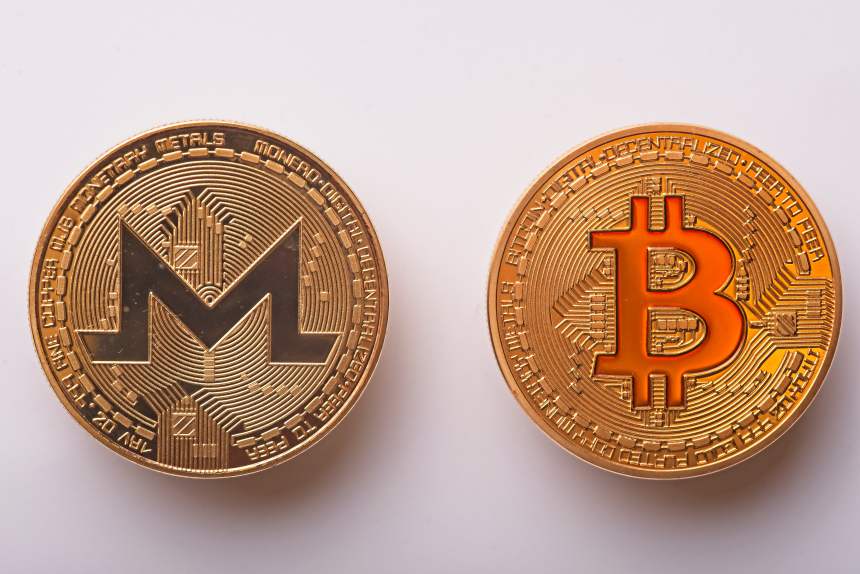Anonymity and privacy are extremely important in the crypto industry. The original crypto that the entire industry is based on was created by the pseudonym Satoshi Nakamoto, and to this day no identifying details are truly known about the person who designed Bitcoin.
However, recently, someone has come forth claiming to be Satoshi Nakamoto, and promises they will reveal their full identity in the coming days. But before the final reveal could happen, the lead developer for the most privacy-centric crypto project in the market is oddly working to expose the person behind the Satoshi Nakamoto reveal – who could potentially be the person who created Bitcoin and in turn sparked the creation of the entire crypto industry.
Monero Dev Exposes Self-Proclaimed Satoshi Nakamoto, Creator of Bitcoin
Over the weekend, a blog post was published from a PR firm representing someone who claims to be the person behind the Satoshi Nakamoto pseudonym and is responsible for creating Bitcoin.
As soon as the blog post was revealed, the entire crypto community took to arms, going through every word in the text with a fine-tooth comb and analyzing every reference to see if there’s any fact or if its pure fiction.
Related Reading | Bitcoin Becomes “Money,” One Satoshi Now More Valuable Than Some National Currencies
The seemingly believable story was met – rightfully – with much criticism and skepticism, and many are working hard to disprove any theories and call attention to any pitfalls in the story. Others are even pointing at the poor “Geocities” quality website as a reason why the story cannot possibly be legitimate, due to the creator of the most powerful financial technology ever clearly being able to afford a better quality website given their ownership of over 980,000 BTC that the self-proclaimed Satoshi says he still holds.
Even the lead dev of Monero, Riccardo Spagni has joined in on the search and whose sleuthing has turned up important information tied to the reveal conspiracy. Spagni has discovered through a public WHOIS domain registration search, that the person who owned the website the self-proclaimed Satoshi claimed to have owned, that the person’s name is Bilal Khalid, and says this person is “not Satoshi Nakamoto.”
For those following along at home, here's the public WHOIS info from thebcci<dot>net in 2008. pic.twitter.com/dyVlzdgB2Q
— Ric “el pony esponjoso” (@fluffypony) August 18, 2019
Spagni connected the dots leading back to Khalid’s real name through the WHOIS data from thebcci.net – the website for Bank of Credit and Commerce International, which the person behind the Satoshi reveal claims is how Bitcoin got its name.
While Khalid or whoever is behind the Satoshi reveal has brought this attention unto themselves, its surprising to see the lead developer behind a crypto project focused on privacy, working so hard to expose the identity of someone – regardless of who they are.
Related Reading | Tools of the Trade: Monero and Privacy Coins Are Creating More Efficient Criminals
Spagni is the lead developer for Monero (XRM), a privacy-focused crypto that’s come under much scrutiny itself as global regulators fear its anonymity and potential for illicit use such as money laundering. But before the pitchforks come out, Spagni’s intentions were noble, and is hoping to prevent the rest of the crypto community and Bitcoin believers from falling victim to what many are calling an elaborate PR stunt, a scam, or worse.
Importance of Privacy in Crypto Sector Will Only Grow as Data Breaches Continue
Privacy continues to be a major issue for the crypto industry, and regulation keeps the issue from ever improving. Regulators force crypto exchanges to require extensive private and personal identifying information. While this does indeed help to prevent crimes such as money laundering, it does so while putting individual person data at risk.
Earlier in the month, Binance was at the center of a controversy involving a hacker who demanded a Bitcoin ransom or would otherwise leak photos of Binance customer’s personal identifying data, such as selfie photos and driver’s licenses.
The only way to prevent KYC data leaks, is for companies to never require it in the first place. Very few crypto exchanges require no KYC and therefore no possible chance of exposing private data. However, as regulation across the crypto industry ramps up, this situation will likely only escalate further.
